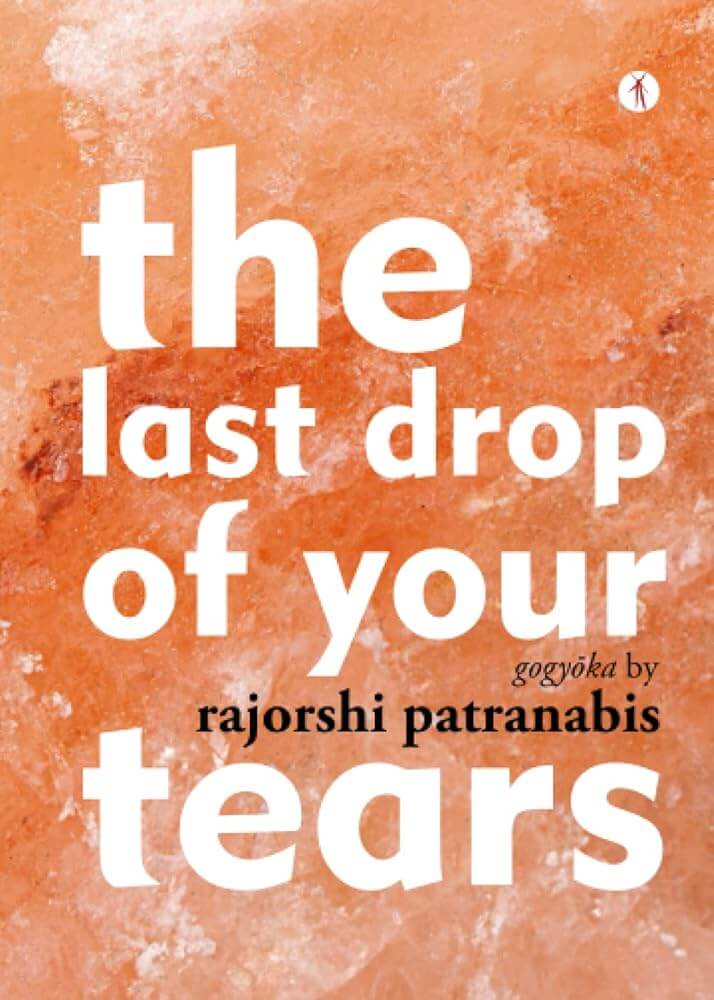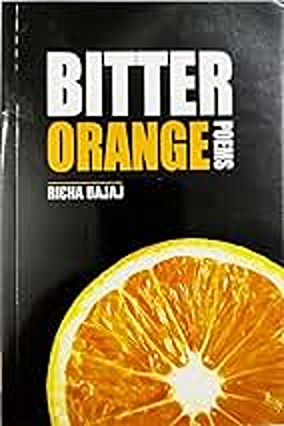Dr Ajanta reviews Rajorshi Patranabis’s “The Last Drop of Your Tears,” a unique poetry collection featuring gogyoka, exploring themes of sensuality, spirituality, and creativity, exclusively for Different Truths.

Rajorshi Patranabis’s collection of gogyoka, the last drop of your tears is a delight for the senses, filled as it is with the haunting apprehensions of a sublime truth. Having written haiku and haibun, two better known forms of Japanese poetry, Patranabis turns to gogyoka, popularized by Enta Kusakabe in the 1990s and produces, in the process, a treasure trove of scintillating gems, their facets glinting in the rays of readers’ perceptions.
A gogyoka is typically an untitled five line poem where each line consists of one phrase with a line-break after each phrase or breath. It differs from the five line tanka in its strict allocation of a phrase per line, making the brief poem more pointed, arresting and impactful. Patranabis experiments within the bounds of this purist premise with form, image, colour and shape, achieving a rare felicity of expression, his verses celebrating what he calls, the “mythical melodies of the fallen heart.” (29)
A yoking together of the abstract and the diffuse with the concrete and the immediate seems to be a practice in Patranabis’s present offering, whether deliberately cultivated or unconsciously affected. This makes the phrases more vivid, and disciplines any tendency on the part of the poet towards prolixity, especially as the gogyoka imposes no limit on the number of words or syllables used in a poem. The second poem of the collection provides an example of this tendency in the lines: “burnt my skin / blacked my soul.” (10) The lines “black dreams of white abstracts” (24) and “colours wrinkle / darkness blinds” (46) are antinomous in composition, in keeping with the theory just advanced.
The title is mirrored beautifully in images that accost the mind with their arresting appeal. In Poem 3 the line “cloudy irises drizzle” (11) and the reference in another poem to “your tears of smelting aroma” (35) engage with the title, diffusing its influence in the general body of the text. Elsewhere, too, the speaker connects with the title in words almost identical to the ones in it, “Your touch dries my story / drinks the last drop of your salty tears” (44) The poem on page 42 is largely taken up with the idea of tears, trying out variations on the theme:
splashes pricked me
drenched
desert dry drizzles
you looked up at last
it is monsoon. (42)
Such oscillation between verses creates a web of auditory associations, an almost incantatory undertone of anticipation and recall that has its own music, as it were, not to mention the secondary layer of meaning wrought through sound effects.
While echoes intensify certain motifs, reinforcing mood and theme, polarities provide a pithy contrast. Young and old; past and present, and eternity and time are juxtaposed for both irony and complementarity:
ancient was young
we grow old
present juggled past
we embraced eternity
hackneyed time (51)
In another poem the oxymoronic “cursed blessings” points in a similar direction. (108)
The collection has a vibrant palette with references to a fulsome profusion of colours – “palette with mingled colours.” (58) Sometimes, colours are understood as pure energy. After referring to “green” waves and a “purple” sunset in a poem, the speaker shares, “she was yellow / I was white,” (50) exploiting the conventional and other associations of the colours. Set against an Abyssinian landscape, a veritable cascade of hues splashes the poems with their mention of red, blue, yellow, white, purple, pink and brown among other shades which are enmeshed with the physical and sensual world. But colours, for their part, have also been shown to be inadequate:
colours rip themselves
our torrid strokes
weary clumsy palette (99)
A movement beyond this cerebrally and sensorily accessed domain of shapes, textures and colours towards a higher reality in the manner of the English Romantic poets is seen in the verse:
step by step
one more breath
where the horizon turns blue
portals lead to that old wait
you and my hollowed colourlessness
The ultimate truth, it would seem, resides in “colourlessness,” that indefinable quality beyond capture or description. The gradual journey of discovery, the wait, the “portals” are essentially Romantic in their symbolic orientation and linkages. (79)
A similar Romantic preoccupation with spiritual deliverance is seen in the image of the parched heart unquenched by rain:
crackled heart thirsts
silent clouds fail to rain
The dedication of the collection to “the agonizing ecstasy of love” is borne out in poem after poem in full blooded, often erotic imagery with sanguinary evocations of a red hot love, alive and vital. From “my deep red veins,” (56) and “split open / rivers turn red / …my bloodless heart pumps in hope” (38) to “breathless red / smeared livid sanctity” (20) the images are patently physiological and unabashedly sensuous.
A number of the poems engage with the act of writing, and the idea, emotion and act of love is sought to be expressed through the metaphor of literary creation, capturing the pangs, poignancy and passion of the experience. The sense of loss and yearning which predominates in this bravura of moods is repeatedly expressed through images of exquisite empathy. The poem on page 73, for instance, demonstrates this tendency towards aesthetic allegory: “our fable of eradicated scribbles.” The image – “rubbles of unwritten poetry,” (74) would, it seems, refer to rubble in the imagination, the literary constructions therein having collapsed. So while in the first instance, the poetry of the shared experience was erased after having been written, in the second one the idea of the poem was razed in the mind before it was subjected to conscious literary composition.
The image “stories of embroidered amnesia,” belonging to the same rhetorical cluster (107) evokes a lingering sadness associated with oblivion and its concomitants. The reference to “tuneless strings” (117) is similarly redolent of an absence of creative inspiration or agency. The line “my ancient story and your unsung metaphors” (80) again testifies to the same application of the devices of writing to aspects of a relationship while “audible songs of lisped story” (116) fuses together the lyric and narrative elements in creativity. The lines “mystical poetry dies / my pen dreams” (85) capture the sense of frustration and futility that is so often a part of the creative experience.
A passion for creation, for bringing things into being, not only love, poetry and art but also the figure of the woman beloved, signifying the essence of creation is seen to be at work:
through hammers of change
you take shape
thousand autumns of love
Themes of pain, loss, suffering, emptiness and sterility coexist with the speaker’s “dubious lust to live again” (94) even as his “last drop quivers to live,” (95) as he “clutches every lone glitter” (96) and his “eyes boast in hegemony.” (104) The poet speaks of “lost algorithm” (30) and “dialectical ransom” (91) evoking the inevitable surrender to the intervention of fate and the passage of time. Yet, over it all triumphs the light of hope, holding promise of satiety and salvation, as he mentions with such percipience in one of the earlier poems: “broken star glimmers hope.” (28) The collection is a limpid tribute to love, loneliness and fulfilment in verses that are poised on curves of emotion, like teardrops sparkling with reflections and trembling with imminent dissolution.
Cover from the internet






 By
By
 By
By
 By
By
 By
By